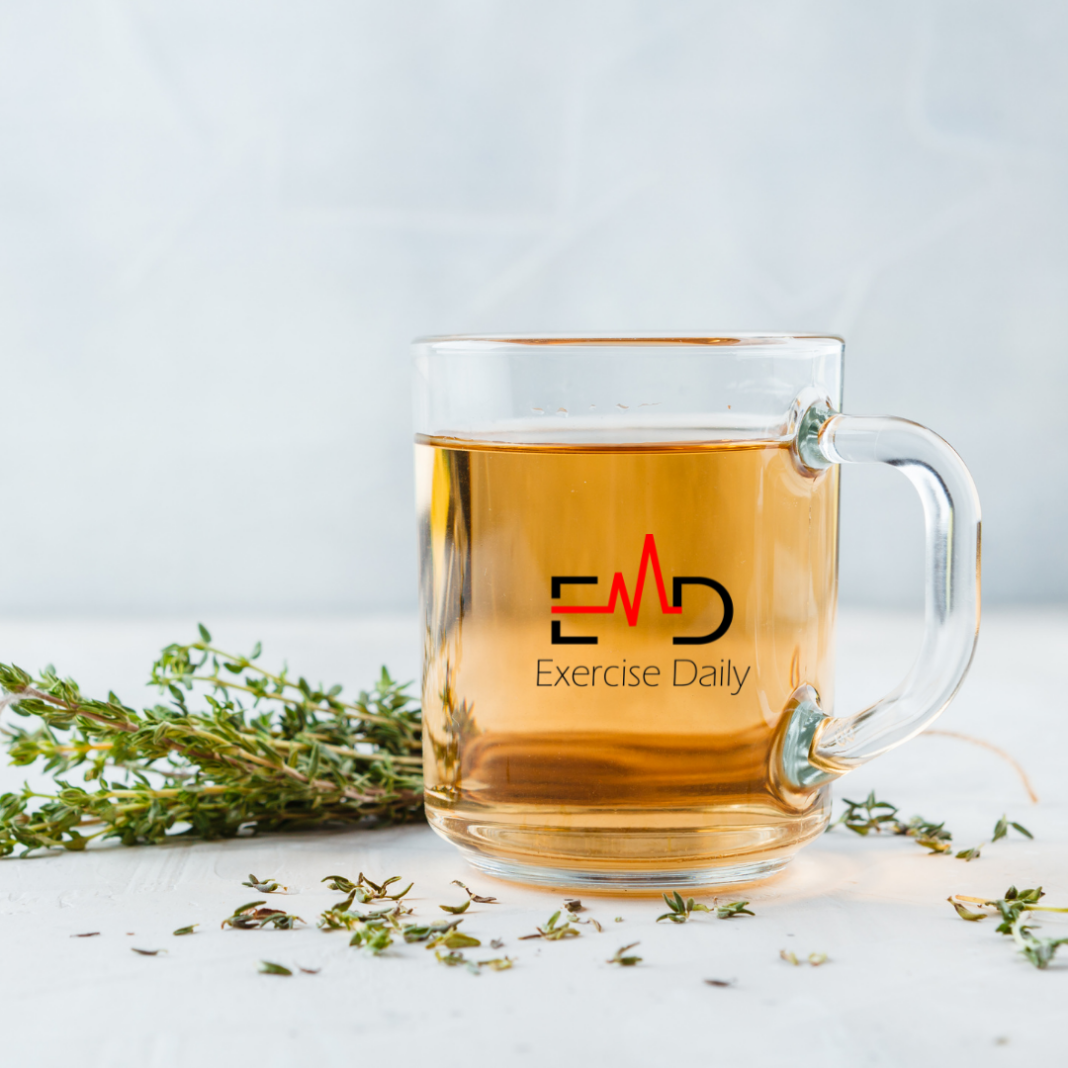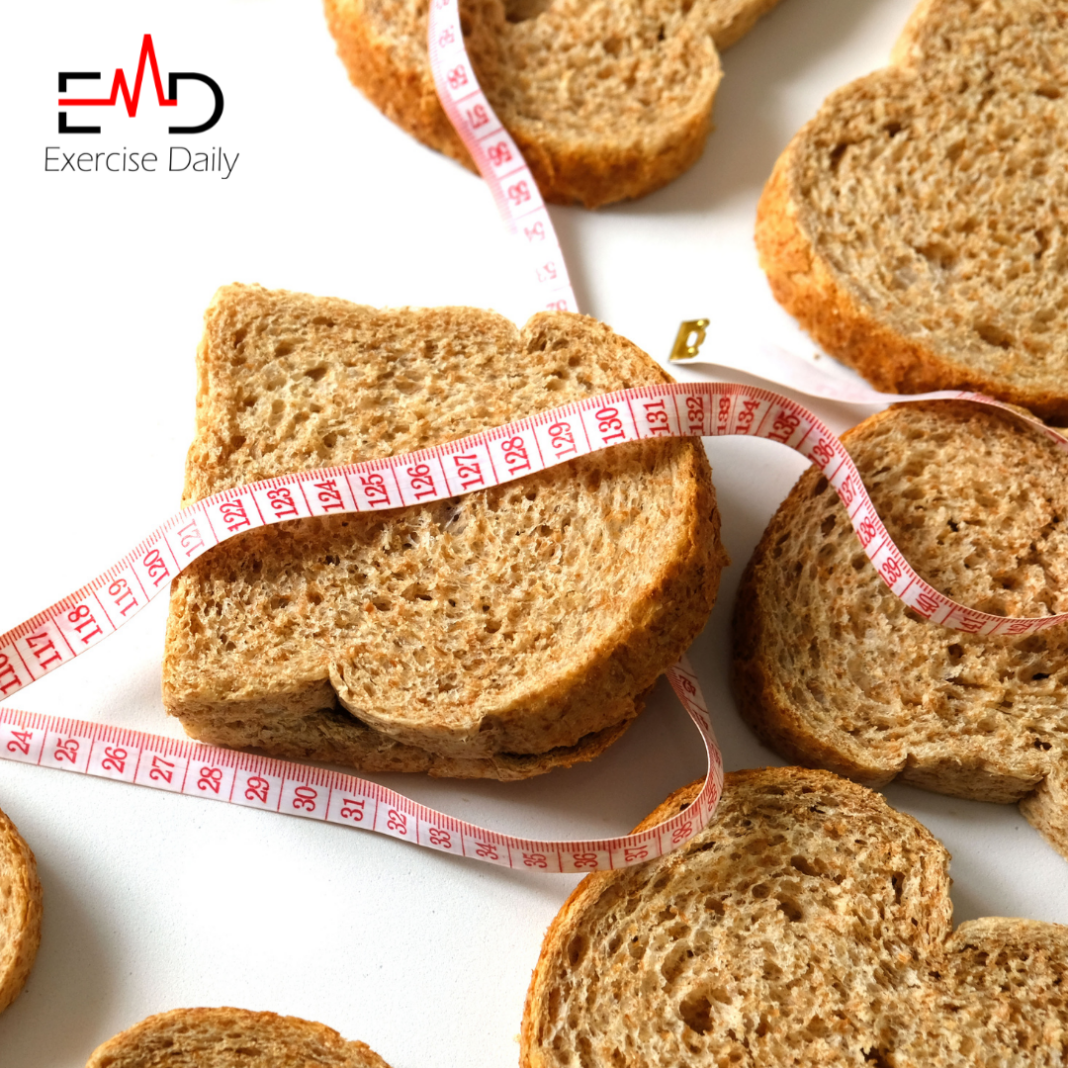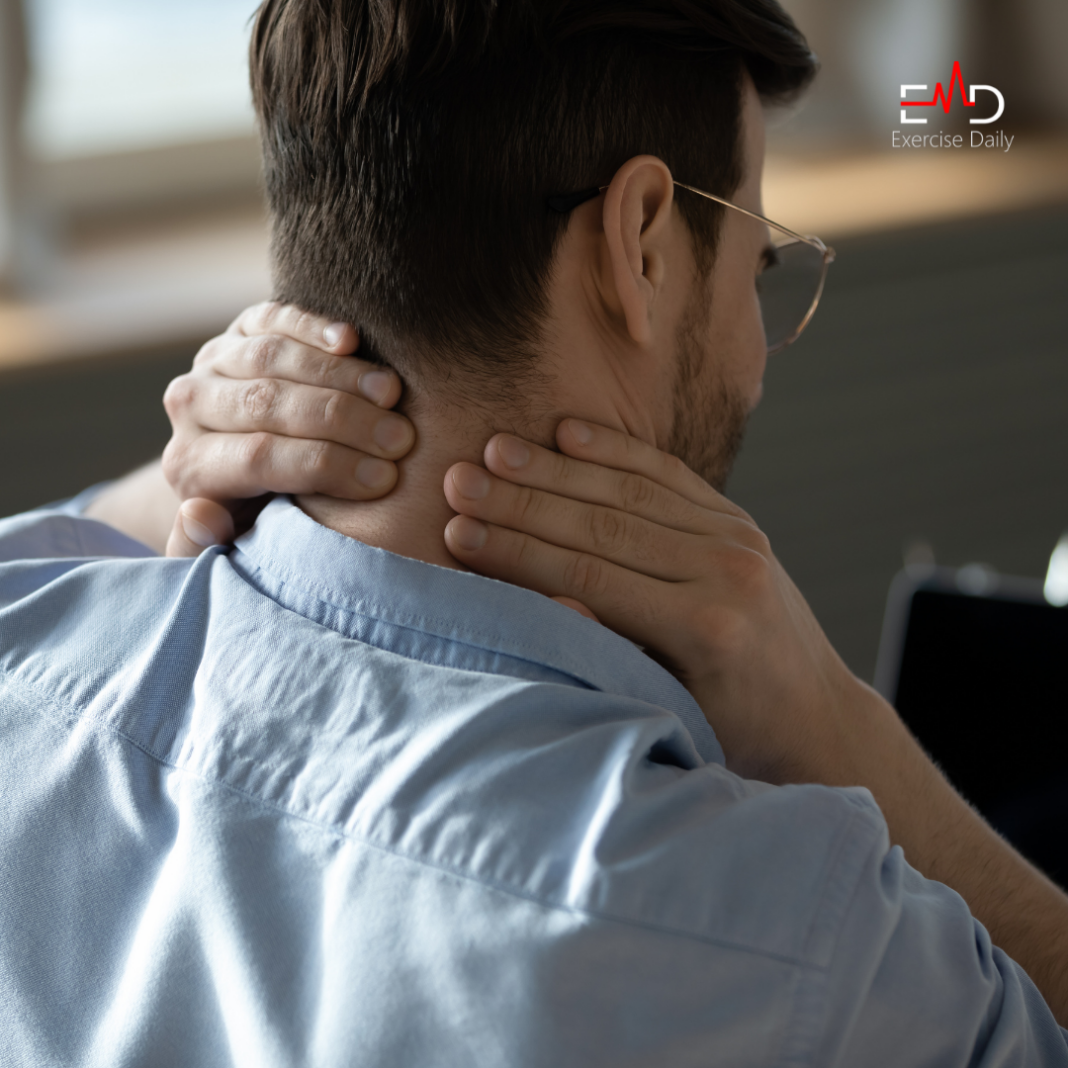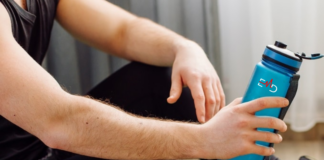Exercise Daily – Teas have been known for their caffeine content. But do all types of tea have caffeine? Does herbal tea have caffeine?
There are various sorts of tea, including oolong, green, and black tea. However, herbal teas are a distinct category of their own, with a wide variety of herbal plants to choose from, a wide variety of tea mixes to try, and a variety of health advantages.
After all, we believe in the benefits of high-caffeine, plant-based energy. At the end of the day, though, there is always time for a cup of herbal tea. Perhaps you’ll be shocked to know that some herbal teas contain caffeine as well!
Does Herbal Tea Have Caffeine?
The majority of herbal teas do not include caffeine; however, there are a few exceptions, such as yerba mate or guarana tea, which do contain caffeine. Some herbal teas include caffeine because it has been purposefully added.
In order to avoid purchasing a tea mix that contains additional components such as cacao or kola nut, it’s best to read the label first.
10 Best Decaffeinated Herbal Teas
Please read the following disclaimers before continuing on with our discussion of the advantages of herbal teas and which ones you should consider trying.
Studies on numerous herbal teas have been undertaken, but more research is needed to understand how they interact with the body in both positive and negative ways.
You can consume these teas on a daily basis; however, excessive use might have negative consequences and cause adverse effects.
Not all herbal teas are healthy for everyone. Therefore you should always get medical advice if you are unsure about something. In conjunction with conventional medicine, herbal teas can be beneficial, but they should not be used in place of it.
Peppermint Tea
Peppermint tea has a fresh and energizing scent that will improve your mood. If you’re looking for something to brighten your day, this herbal tea is a perfect alternative.
Similar to brushing your teeth in the morning, the menthol in mint tea is naturally pleasant and serves as an excellent approach to help you get up in the morning.
The essential oils extracted from peppermint leaves might also help you to be more alert and remember things better.
However, if you need a little boost of energy to get through the day, the Pomegranate Mojito is a great choice. It contains peppermint, green tea, pomegranate, and lime and is one of the high-energy green tea blends. So, now you know about does herbal tea have caffeine.
Hibiscus Tea
An acidic and cranberry-like taste characterizes the hibiscus plant, which may be consumed either hot or cold. In Mexico, the hibiscus plant is used to make a refreshing drink known as agua fresca.
Whatever method you use to consume hibiscus tea provides a wide range of health advantages. It is high in antioxidants, which assist in fighting against free radicals, decrease blood pressure, and may even aid in lowering blood fat levels in some cases.
Beyond the antioxidants and blood pressure advantages, it may also improve liver health and weight reduction. It also includes components that have been believed to be cancer-fighting agents.
Rooibos Tea
Herbal tea Rooibos has a flavor profile that’s quite close to that of black tea. It has a taste that is rich, somewhat malty, and well-rounded, with traces of tannins.
So, if you need a hot cup of black tea to get you out of bed in the morning, rooibos tea may be the answer for you, even though it does not contain any caffeine.
Furthermore, rooibos tea can assist you in increasing your daily intake of manganese and zinc.
Rose Hip Tea
It is the rose plant that produces the rose hips, which have a tart, fragrant aftertaste. Rosehips, like the majority of herbal teas, are high in antioxidants and may help to strengthen the immune system.
Rose hips may also help to prevent heart disease, help with weight reduction, and may be beneficial in the treatment of type 2 diabetes as well as inflammation.
Another unexpected advantage is the skin’s ability to fight against the signs of aging. Consider the possibility of drinking your way back in time. If you are still thinking about does herbal tea have caffeine, then you should know that herbal teas don’t have caffeine.
Licorice Tea
Licorice is the third caffeine-free energy-boosting tea on our list. This tea, which is derived from the root of the licorice plant, is high in glabridin, a flavonoid that has antioxidant properties.
This flavonoid, in addition to having anti-inflammatory properties, may also regulate energy metabolism, allowing you to maintain your energy levels throughout the day.
Keep an eye on how much licorice tea you consume since having too much might result in high blood pressure (hypertension) and low potassium levels in the body (hypokalemia).
Sage Tea
That’s correct. Sage tea is in order. It may surprise you to learn that sage is linked to the mint family. Sage from your Thanksgiving Day turkey or morning sausage may be used here as well. This tea has a strong scent and may be beneficial for skin, oral, and brain health.
If you are concerned about heart disease or type 2 diabetes, it may help to lower your risk. Camphor is a component of sage that promotes faster wound healing. Studies on the brain have shown that it has the potential to improve mood and memory.
Chamomile Tea
In the evenings, a cup of chamomile tea, produced from the flowers of one of the chamomile plant species, is a wonderfully relaxing tea to sip from a teacup.
Chamomile is frequently used in natural sleep-aid mixes since it has been shown to considerably enhance sleep quality.
In addition, there is evidence to suggest that it can be useful in reducing generalized anxiety disorder.
Ginger Lemon Honey Tea
This is another herbal tea produced from the roots of a plant, such as licorice, that is consumed hot. Ginger is often thought of as a spicy ingredient that is packed with flavor and highly energizing.
Since we are talking about does herbal tea have caffeine; ginger lemon honey tea is also the one without caffeine.
It’s essential to the preparation of the Spicy Masala Chai. However, when brewed with lemon and honey, it is also a popular cold-relieving treatment.
Ginger has anti-inflammatory effects, which are well-known in the culinary world. A calming herbal treatment to try is ginger tea, which has vitamin C and antioxidants from lemon juice as well as the soothing flavor of honey.
Jasmine Tea
Infusing jasmine blossoms with green, white, black, or oolong tea produces jasmine tea. It has a delicate floral aroma that is both light and fragrant, and it is high in antioxidants.
The use of jasmine tea has been related to a reduced risk of heart disease and some malignancies. Drinking hot jasmine tea can relieve tension and anxiety. It may also assist in weight loss and cognitive function enhancement.
Lemon Balm Tea
Lemon balm is the next herbal tea that we suggest you try for its relaxing properties. It has a grassy flavor that is similar to that of green tea, and it offers a number of fascinating health advantages.
It includes rosmarinic acid, which has antioxidant and anti-stress properties, as well as anti-inflammatory properties. Throughout the day, a cup of natural lemon balm tea can help to boost your mood as well as your cognitive function.
Why Isn’t Herbal Tea Considered True Tea?
The whole issue began when it became necessary to distinguish between black tea and any other infusion of herbs and spices.
In those days, black tea was being introduced into Europe by the East India Trade Company, which wanted black tea to stand out among the herbal teas. Since we are talking about does herbal tea have caffeine, you must know the history too.
Now, the differentiation extends to all teas derived from the Camellia sinensis and Assamica varieties, not simply black tea, and the distinction is no longer limited to black tea.
In other words, black tea, green tea, white tea, Oolong tea, and Pu’erh tea are all considered to be real teas. All of this was simply because black tea was the most readily accessible option at the time.
Simply distinguishing between tea coming in from Asia and the tea that was already existing was the initial purpose of this differentiation (various herb teas).
Herbal Teas in Europe
The term tisane has an exceptionally long and intricate history of adopting the word from a language, which is quite difficult to trace back.
This is evidence that herbal teas have been around for a long time and are well-known as therapeutic teas. They were pretty much constantly there, in the background, being employed to treat one or another disease.
However, as the Camellia sinensis plant made its way to Europe, it became necessary to distinguish between the two.
Another fascinating development occurred. People began to become accustomed to drinking tea on a more regular basis, and they began to include herbal tea into their daily routines.
Due to increased herbal tea use, there was an increased demand for more specific terminology to describe different types of tea.
FAQs – Does Herbal Tea Have Caffeine?
Are all herbal teas caffeine free?
Almost all herbal teas do not contain any caffeine. Due to the fact that herbal teas are created by infusing plants that do not contain caffeine, the great majority of herbal teas are caffeine-free.
Are there any herbal teas with caffeine?
Only yerba mate has naturally occurring caffeine in herbal tea form.
For example, it is popular in the southern and central regions of the continent, as well as the northern regions, where Latina immigrants took their enthusiasm for the herb with them.
Which herbal tea has the most caffeine?
Yerba Mate is made from the leaves of the holly tree that grows in the rainforest. In addition to providing beneficial antioxidants, Yerba Mate also contains 85 mg of caffeine per cup, making it the tea with the highest caffeine content.
Which tea does not have caffeine?
There is no caffeine in herbal teas such as peppermint, chamomile, or ginger. This is due to the fact that these types of teas are not derived from the camellia Sinensis plant, which is the source of most teas.
Instead, they are produced from dried flowers, leaves, seeds, or roots that are typically devoid of caffeine.
Does herbal tea keep you awake?
Loose Tea has a stimulating chemical ingredient that is well-known for providing an energy boost after consumption. This is one of the reasons why it may keep you awake at night.
The same cannot be said about Herbal Tea, which is nearly invariably completely devoid of any caffeine content.
Conclusion
So, if anyone asks you about does herbal tea have caffeine, you can tell them that herbal teas don’t have caffeine except Yerba Mate tea.
Some herbal teas have a long history of being used to treat common ailments, such as the usage of mint to ease the stomach, which has been around for centuries.
Traditionally prepared from the seedpods of roses, rosehip tea has a tart taste and is high in vitamin C. To make herbal teas, you can use one plant, like chamomile or a combination of herbs.
Some tea blends that aren’t genuine herbal teas may contain substances that contain caffeine, so be cautious when buying these. In the case of caffeine sensitivity, you may suffer nervousness as well as sleep problems.
Tell us about your favorite herbal tea in the comments section below!




